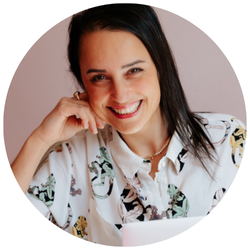You’re at your desk trying to write a masterpiece, but you keep staring at the blank page and that glaring word count: 0.
Do you start commiserating about how you’re not disciplined enough, you’re a procrastinator, that you'll never be a writer?
If so, stop right now. Take a deep breath.
The problem is not you. It’s the laptop.
Yes, you read that right.
When we are not focused or productive, we immediately blame our brain. But it's usually more about our external factors — like our digital devices.
Let's explore how our tools can affect our productivity.

The Mental Toll of Decisions
Picture this: You have to buy milk, so you enter a small shop that only sells milk.
It's easy; you can’t buy anything other than milk, and there is no stress, no decisions to make, and no distractions.
Now, suppose the shop expands to sell milk and bread. You go there, and you definitely don't forget about buying milk, but you have to navigate to the milk section and decide whether to ignore bread as you walk past it — or maybe you actually do need some bread after all. It seems simple, but you now have an additional layer of decision-making.
Now, imagine you step into a giant supermarket where they sell everything you can imagine.
You don't just have to remember to buy milk, you have to decide what to do with everything in that store (even if unconsciously) and filter out what is not needed.
This choice becomes even more difficult if every product is designed to grab your attention: appealing packaging, captivating colors, good prices, or attractive offers.
Think about it: How often have you left the supermarket with everything in your cart but what you needed?
And even if you remember to buy what you need, you often leave with way more than that — including a lot more stress and exhaustion.
It’s not you.
Focusing only on what you need while the rest of the world pushes and pulls you in all directions is demanding and requires a lot of mental effort (as explained in our previous posts).
Guess what? Writing on your laptop means constantly shopping in a huge supermarket that sells everything. Email, social media, games, Photoshop — it’s all there in one place and your brain knows it.
What can we do to combat this?
Having a clear "shopping list" (or to-do list) that reminds us what we are doing is paramount.
But we can do more.
Single-Purpose Devices
The most powerful way to alleviate the burden of distraction — or the potential for distraction — on your brain is to intentionally choose what you want to be exposed to.
One easy way is to not write on your laptop. With email, calendars, social media, all your apps, your laptop is a portal to the entire world. And that automatically produces the temptation to do something else — or to multitask, which we already established does not work.
Avoiding the distractions inherent on a multi-purpose device forces our brains to stay on one task and bypass the spontaneous multitasking naturally induced by a laptop.
The most powerful way to alleviate the burden of distraction — or the potential for distraction — on your brain is to intentionally choose what you want to be exposed to.
Instead, leave the laptop for those things that can’t be done elsewhere. When you need to write — to compose, invent, or imagine — use a different method.
Maybe you say, "But I can block apps and put on focus mode." Turns out even the mere presence of these devices reduces available cognitive capacity and works as a constant distraction. Even just looking at the icons makes us feel distracted!
Turns out even the mere presence of these devices reduces available cognitive capacity and works as a constant distraction.
For this reason, many people choose to write by hand. But converting our handwritten work to the digital form needed for most modern publishing and business purposes is time-consuming. This is why many people choose digital single-purpose devices like Freewrite.
Making fewer decisions means saving cognitive energy for your writing and massively increasing productivity and creativity.
So, if you are still staring at a paltry word count:
- write down your personal "shopping list" or use a prompt to guide your creativity and focus, and
- use distraction-free tools.
This is the simple but perfect system to supercharge your word count.





























